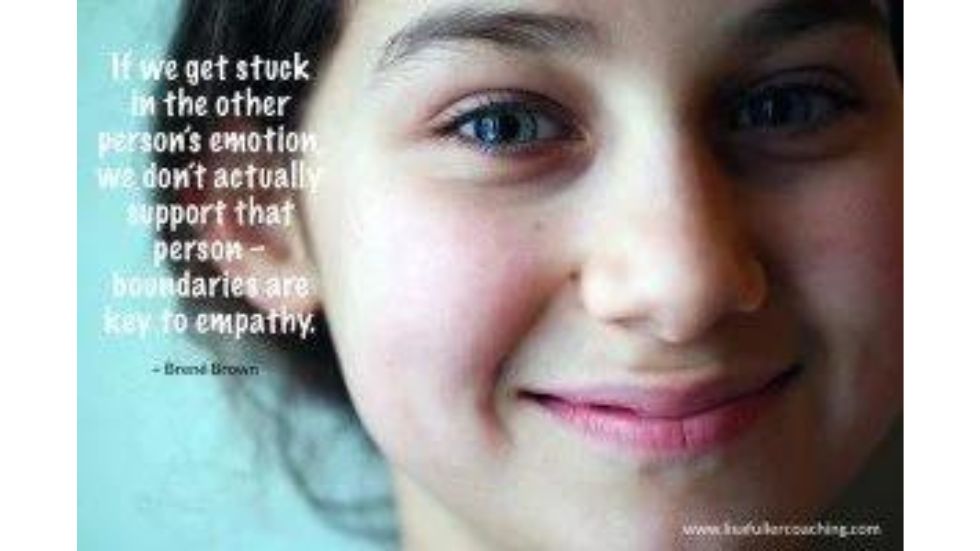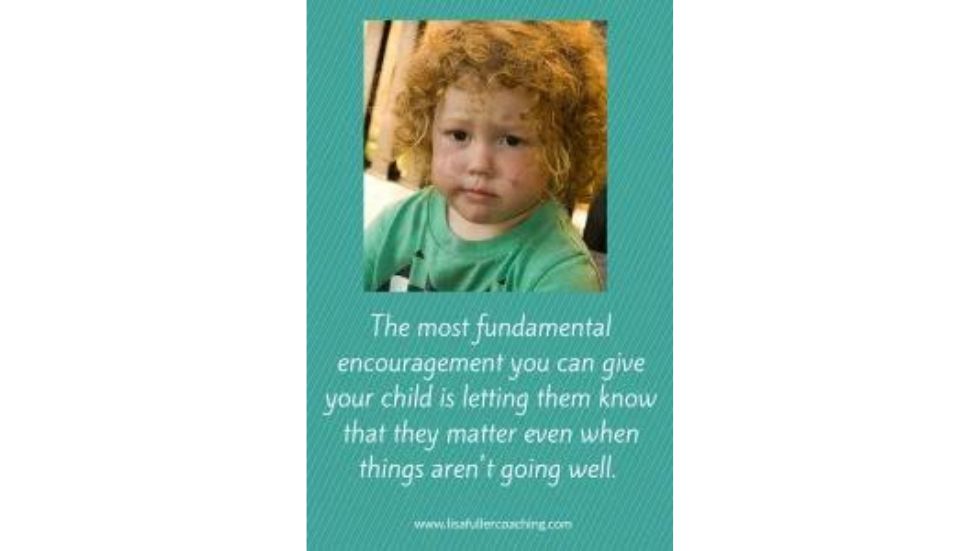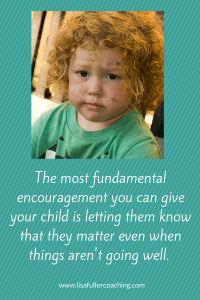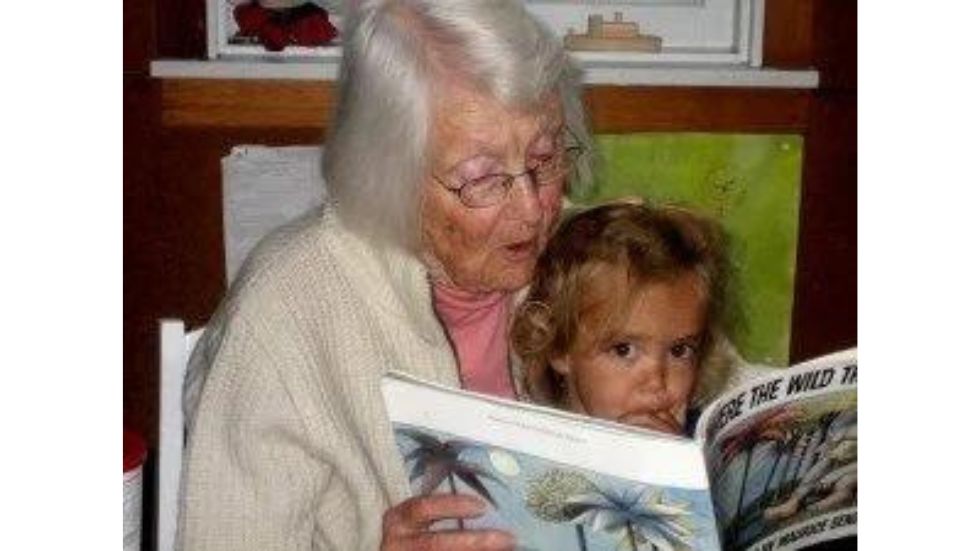
by Lisa Fuller | Jan 29, 2015 | Communication, Connection & Love, Encouragement, General, Parenting
Q: As the mother of a middle school girl, I struggle to be empathetic without jumping on the roller coaster of her ever-changing moods, emotions and dramas. And, as a woman in her late 40s, my emotions are often a 6 Flags of hormonally-induced thrills, so staying detached feels nearly impossible at times
Recently my seventh grader tried out for the school musical. After a series of micro disappointments this Fall (not making the “A” soccer team, getting put into an advisory group without any good friends, being just slightly outside of the ‘cool’ group, etc.), she was serious about getting a good part for the show. She practiced her song with a singing teacher several times and felt good about it.
Several days went by while she waited for the cast list to be posted. I worked on shifting her language away from ‘good’ and ‘bad’ parts in the show, to some limited success. I wanted to support her enthusiasm but it was draining to stay positive given my fear of the potential bad news ahead.
This daughter can be fairly stoic, but when she saw the cast list, she ran up to her room and sobbed so loudly I was afraid she would choke.
After a few minutes of trying to let her release her disappointment on her own, I went in to check on her. With your thoughts of empathy fresh in my mind, I resisted the temptation to tell her the emotions would pass or it didn’t matter or that the part was probably better than she thought, blah, blah, blah.
Instead, I let her cry, supporting the wildly strong feelings raging through her. Unfortunately, it was just a matter of time before I was crying too, and then we were both sobbing at the injustice of the world (did I mention I am a pre-menopausal woman with raging emotions?)
I managed to get myself together and put her to sleep, but then I could not stop crying. I just felt so sad for her and could not put it away. It took all the strength I had not to email the drama teacher and ask her if there was any way to revisit the cast list. Which is just a simply INSANE thing to even think, let alone seriously consider!
So here’s my question: how can we support our children with their dreams, projects, efforts and goals (especially our daughters) without getting enmeshed in the outcome? How can we let our older children navigate the disappointments and challenges of life without getting sucked into the emotional turmoil that goes along with the journey? Where do you draw the line between empathy and over involvement/attachment?
A: First, Michelle, congratulations on your success in avoiding many of the common barriers to empathy. What you did was no small feat — staying out of judgement, taking her perspective and touching a place in yourself (maybe a bit too deeply) that understood her feelings.
Simply defined as “the ability to understand and share the feelings of another,” empathy is nuanced. While you were able share your daughter’s feelings, it proved difficult to pull yourself out.
To answer your question, here are my ideas to strengthen your empathetic response even more while simultaneously moving you out of the helicopter parenting zone altogether.
From Helicopter Parenting to Empathy
- Validate her feelings. In your story Michelle, you give nice examples of how you did this — letting her cry and stay in her feelings, etc.
- Resist the urge to fix. You write, I resisted the temptation
 to tell her the emotions would pass or it didn’t matter or that the part was probably better than she thought, blah, blah, blah. This is cause for celebration! When you’re done partying let’s look at what you describe your fear of the potential bad news that she didn’t get a “good” part. Your feeling of fear fuels your underlying belief that something needs to be fixed. You can do one of two things here, keep your fear AND bite your tongue, which
to tell her the emotions would pass or it didn’t matter or that the part was probably better than she thought, blah, blah, blah. This is cause for celebration! When you’re done partying let’s look at what you describe your fear of the potential bad news that she didn’t get a “good” part. Your feeling of fear fuels your underlying belief that something needs to be fixed. You can do one of two things here, keep your fear AND bite your tongue, which
you did, or, with the help of a friend, coach or therapist, internally shift your perspective from disappointment = bad to disappointment = opportunity for growth. (I’ll go into this more in my next post). What I’m suggesting is more than a surface shift — that’s why it requires support.
- Share your own story of disappointment. By sharing a simple one sentence story of a time you didn’t make the team or you weren’t invited to the party, you let your daughter know that she’s not alone and most importantly, that she belongs. (A sense of belonging in family is profoundly impactful to a child’s sense of well-being.) For example, I remember when I longed to be chosen to play the role of Mary in the church nativity, yet I wasn’t picked and I felt terribly sad. One sentence that’s it. I can hear parents ask “Isn’t there more to say than that?!” No — children are self focused, your goal here is to simply let them know you’ve been there — voila.
- Be present. It’s not what you say that will make a difference, but simply your presence, your ability to be with your child. Ground yourself in what’s most important to you, tuck your phone and other distractions away and like the Beatles so beautifully sang, let it be.
- Practice mindfulness. Mindfulness strengthens our ability to have boundaries which according to Brené Brown’s research is key to empathy. If we get stuck in the other’s emotion, we don’t actually support that person – boundaries are key to empathy.
One of the many gifts in your story is how fully engaged you are in your daughter’s life.
Thank you Michelle for sharing your story and question, deepening our understanding of empathy. I appreciate and honor your willingness to be vulnerable — it can feel scary to divulge our struggles when we’re “supposed to be” the all-knowing parent!
Are you wanting someone to walk you through a parenting challenge like the one that Michelle shared? If so, visit my schedule to find a time for us to meet via phone or Skype.
I know that parenting is important to you — it’s worth taking time for yourself, so that you can be the parent you want to be, even in your most challenging circumstances.
Take a moment to share in the comment section below how you relate to Michelle’s story and what you want to remember from today’s post.
If you haven’t already done so, join me on this journey!
Wanna talk? Schedule a time here.

by Lisa Fuller | Jan 14, 2015 | Encouragement, Parenting, Self-regulation, Sibling Issues
During a parent education evening last week, I rattled on about the importance of encouragement in parenting and shared my favorite slogan, “Children Do Better When They FEEL Better.” Then an arm shot up.
One of the parents, Sarah, looked sincerely puzzled and asked a simple question that got every head in the room nodding:
“Encouragement and Positive Discipline are great when it’s a low stakes situation, but what about when safety is involved? How should I respond to a threat of physical harm from one of my children to the other in a positive way?”
When I asked her to explain her situation, Sarah told the following story (which may be very familiar to anyone with children close in age and remembers, or is going through, the baby/toddler sibling combination):
It was the end of the day, about an hour before my husband got home… typically my roughest time. Gus (3) was zipping around the house on his tricycle when he headed straight for his little brother (6 months), stopping just a hair from Fisher’s little fingers. I told him not to do that, that he could hurt Fisher and it didn’t feel safe to me. A minute later, he did the exact same thing and I basically flipped my lid. I yelled, “STOP,” stormed over to Gus, pried him from the tricycle, and let him cry on the ground as I put the trike outside. I felt really protective of Fisher and that I needed to stop Gus. I felt awful for yelling and reacting in a physical way because he was so sad afterwards. But how else could I show him that I was in charge?
Sarah’s story highlights the primal nature of being a parent. We’re hard-wired to protect our children from a perceived threat, even if that threat is their sibling. Keeping your children safe is your first priority as a parent and if a quick intervention — sometimes ungraceful or inflated — is urgently needed to protect a baby or younger sibling from harm, you need to do that, and quickly.
But I encouraged Sarah (as I would any parent) to turn from the immediate danger to look for connection and encouragement with the older child instead of punishment. I know this sounds crazy and counter intuitive but here’s what Positive Discipline teaches us:
The most fundamental encouragement you can give your child is letting him or her know they’re significant even when things are not going well.
(Significance here means has value, has meaning, matters to you and to the broader community, etc.)
What does encouragement look like in this situation? How can Sarah communicate that Gus has significance?
Sarah could physically block the trike from Fisher’s path (as it does not appear that Gus intended to stop on his own) and take a deep breath (essential in such a case).
Rather than lifting him off the trike right away, she could gently and firmly lift just Gus’ hands off the handlebars, look into his eyes and say:
Gus, wow, my he art is beating really fast because you really scared me by coming that close to Fisher’s hands. (Pause and breathe.) I could use a hug right now – could you give me a hug? Let’s bring your brother in, I bet we could all use a hug to feel better.
art is beating really fast because you really scared me by coming that close to Fisher’s hands. (Pause and breathe.) I could use a hug right now – could you give me a hug? Let’s bring your brother in, I bet we could all use a hug to feel better.
If this feels impossibly warm and fuzzy in such a potentially dangerous situation, consider this story from Gus’ point of view.
Rather than feel punished and sad (as he clearly did when the trike was chucked outside and he was left crying), Gus might think, “I did something wrong that really scared my mommy. What I do has an impact. I’m important to mommy and I can even help her feel better.”
The most fundamental encouragement you can give your child is letting them know that they have significance, even when they’re misbehaving.
In this scenario, asking for a hug is encouraging – very different than offering a hug because you’re engaging your child in being part of the resolution in an active way.
CHILDREN DO BETTER WHEN THEY FEEL BETTER! (we all do!)
Even when our children misbehave – if we can take steps to help them feel better, rather than making them feel worse, we are much more likely to encourage the kind of behavior we want to see from them in the future.
4 Steps for changing our response from punishment to encouragement:
- Shift your assumptions: Work on moving from my child will learn to behave by being punished to my child will learn to behave by getting the message that he or she matters.
For an example Sarah also shared a story of how she “felt a shift from the tricycle incident” just the day after my presentation. She wrote:
Gus was standing on his stool near the stove where I was getting ready to cook an egg. He tossed the hot pad that was on the counter onto the hot pan. I exclaimed surprise and got the pad out. I told him that was really scary and we absolutely do not throw things on the pan. He didn’t seem to be doing it out of defiance, which probably helped my reaction just be scared and then clear. But it was like we were scared together, learned something, and then moved on. No tears, no drama…so much better. It just gave me a taste of what you were talking about.
- Plan ahead: We’ve all yelled at and lost it with our kids, but by thinking through possible responses to common challenges ahead of time, we have a greater chance of pausing and consciously responding rather than giving our knee jerk reaction.
For example, I have a son who leaves what I call anonymous messes quite regularly around the house. This is a common challenge that I’ve planned ahead for by deciding on a few ways to respond when I’m next faced with his mess. Just yesterday, I found what looked like spilled detergent on the floor near the washing machine, covered with pillow cases. I suspected he left this mess and rather than simply accuse him and rant AT him for not taking the time to clean up, when I saw him I’d calmly asked a few clarifying questions, had he been doing laundry (yes), did he know about a spill, (why yes he did — this fessing up is progress), what could he do about it now? (This is a challenge for me but staying calm and building cooperation — progress, not perfection — is a huge victory for me and the only way I can do it is by planning for it).
- Assemble your parenting toolkit: Know your game plan by having tools at the front of your mind (Such as, “I need a hug,” asking WHAT & HOW questions like “what’s your idea to solve this problem?”). Sort through the Positive Discipline Tool Cards and pick three you’d like to try.
- Get support: Reach out for professional support. Even if it’s not with me, find someone who can help you weather the shift and put this new approach into action over time. It’s about progress — not perfection!
Regardless of the age of your child, encouragement through connection, in place of punishment is life changing — for both parent and child!
Please share in the comments below simple ways that you can remind your child of their significance (that they matter) today. In doing so, you’re giving us ideas that will encourage us to plan ahead – step 2 above! We’re all in this together 🙂
If you haven’t already done so, join me on this journey!
Wanna talk? Schedule a time here.

by Lisa Fuller | Sep 23, 2014 | Encouragement, General, Parenting, Self-care
Years ago I read an interview with Susan Sarandon.
When asked if she missed the thrill of working in between jobs she said no, there’s nothing I’d rather do than spend time with my children. They’re the most fascinating people I know.
Can’t you just hear her saying that?
Although I read them years ago, her words (how I remember them) continue to cycle through my memory and with them comes more than a pang of inadequacy. She’s clearly an attentive, interested mother who’s produced spellbinding people to boot!
Don’t get me wrong. I couldn’t love my children more than I do – they are kind, cool, quirky, creative… downright good people.
Nonetheless, the image of the hip, engaged Sarandon mama has stuck with me. I don’t measure up. I’m not good enough.
When my second son was six, a friend he affectionately called his “God Brother,” invited him to camp on the beach in Hawaii for 10 days!
Sure we hesitated, it seemed dicey to have our child a stones’ throw from the ocean and so far away from us. But we trusted the parents, he was eager to go and we wanted to encourage his openness.
I was thrilled.
When we spoke with him on the phone he enthusiastically cheered that he was having the time of his life (his exact words).
Am I a good mother? How is it that I enjoy my little one being so far away – for so long?
Susan Sarandon has become a symbol for me – beyond Bull Durham and Thelma and Louise – she’s the uber interested mama who prefers the company of her children over her friends and her cool tribe of actor homies.
My fantasy continues… when Susan goes out to dinner with her kids, there’s no scuffle over devices because each family member is wrapped in titillating conversation or simply basking in each other’s company. Her kids prefer the company of their mom to friends (okay, Lisa now you’re just being silly).
Who’s your version of Susan Sarandon?
Is there someone you measure yourself against? Someone you use to judge yourself?
Maybe it’s your neighbor Jane whose kids always say thank you, their pearly whites shining through their gorgeous smiles.
Maybe it’s your cousin, the preschool teacher whose children abhor television and sugar and spend their days tending animals and making toys from scraps they find in the woods.
If you’re like me, you hold tightly to an idealized version of someone else as evidence to support an underlying angst that you’re not a good enough parent.
That sense of not enough pulls you away from the present moment.
I’ve no doubt that the mere act of becoming aware of your version of Susan Sarandon will go a long way to tame it. But what else can you do?
Remember my New Year’s invitation back in January? Some of you took me up on it and MANY of you wrote to say you thought it was a good idea.
Good ideas need action.
What’s one thing you LOVE about yourself as a parent?
What’s your specialty – reading bedtime stories? Being there for the neighborhood kids? Lightening up a tense moment with a perfectly timed joke?
Imagine if you spent a fraction of the time you do berating yourself for not living up to your Susan Sarandon, in taking stock of your positive qualities.
How would you feel? What might change?
Share right here and now: One thing, big or tiny that you do well as a parent. You deserve to take a moment to celebrate what works.
For kicks, share what it is about your ideal that “gets” you. That should provide some fun reading in the comments!
(If the website is getting in your way – send me an email – it can be one sentence or even one word!)
If you haven’t already done so, join me on this journey!
Wanna talk? Schedule a time here.

by Lisa Fuller | Jun 13, 2014 | Chores, Connection & Love, Cooperation, Encouragement, General, Parenting
Let’s face it. Most kids today s–l—i—-d—–e when it comes to contributing.
You go through the motions of assigning chores, but most of us find that it’s just easier to do them ourselves. Especially if the alternative is to beg, cajole and demand that they take out the recycling, take out the recycling… take out the recycling!
Who can blame you? Why bother? It’s painful all the way around.
Here’s what I learned during supper with my Granny. From my vantage point, she’s not your average centenarian.
Sure, it’s the middle of summer and she’s wearing her blue wool sweater. But she’s got ALL her wits. — Only her hearing and sight are diminished.

Granny reading with my daughter
At 103, she’s a beauty with a blunt white bob, light blue eyes and a genuine interest in others that permeates every conversation.
She loves to ask about details. And she’s interested in mine.
On this occasion I made a conscious effort to ask her the questions… at least one.
Dinner with Granny
Due to her hearing loss, a snippet of our conversation (in a dining room full of people) went like this…
GRANNY, I’M STILL TEACHING PARENTING CLASSES.
Won-der-ful! (her pronunciation deliberate and bright)
I’M CURIOUS ABOUT YOUR EXPERIENCE AS A MOM. AFTER 78 YEARS OF PARENTING, WHAT WOULD YOU SAY WAS THE MOST IMPORTANT LESSON?
I really don’t recall (she waves her hand and shakes her head as if that’s too far back to remember)… but mother and father (she’s referring to her parents) did a marvelous job.
WHAT DID THEY DO THAT WAS SO MARVELOUS?
(She pauses for a few moments to consider before answering) I was allowed to help with a lot of things. We didn’t have any help so we were the help.
She grew up in a modest, hard working immigrant family in Perth Amboy, New Jersey. Her mother from Denmark, her father from Norway and she the youngest, by far, of 3 and the only girl to boot. She said her brothers always teased her saying she was favored.
So when she says she was allowed to help, she means it – she felt special sitting beside her mother making and mending clothes, weaving rugs, cooking meals, planting vegetables in the garden, etc.
Granny is a practical woman. Learning useful skills that enabled her to contribute to the wellbeing of her family was deeply satisfying.
Our conversation went on, she acknowledged how proud I must be of my growing children – my voice echoing throughout the dining room.
It’s that simple.
I’m struck by the power of a sense of usefulness to withstand the test of time. With love and caring as a cornerstone, Granny’s sense of being a useful member of the family is paramount in her childhood memories.
I know I struggle to get my kids involved in day to day housework. You and I both know, it’s so much easier to just do it ourselves!
Over dinner last summer Granny reminded me of just how worthwhile that effort is.
My story
Yesterday I had laundry that needed to be unloaded, carried, sorted and put away. Seven year-old S. was in a bit of a snit after-school and I knew asking her to help with this relatively light task could easily back fire and become an unpleasant battle.
Here’s what happened:
Me: I’m going to get the laundry – you can come give me a hand or meet me to fold it in my room.
She didn’t say anything but scurried along beside me (things are looking good!)
I took towels out of the drier.
Me: How many can you carry?
She got silly.
S: Mommy, put them all on my head, I CAN DO IT!
I played along for a bit and then just grabbed a few towels so that she could see as she walked, covered in towels, to our room.
In my bedroom she watched as I began folding clothes and towels and stacking them on my bed.
Me: How about you take alike things and put them away in your drawers – like this stack of pants?
S: Okay. (Miraculously she purposefully takes a few trips, arms fully loaded, and then decides it would be interesting to switch with me and be the folder)
We went on like this until the task was complete – all clothes and towels folded and put away. This is a minor miracle – usually things get put away over the course of a day or two – often clothes take the most direct route – basket to body).
Here are four fundamentals to keep in mind to increase your odds of success when encouraging kids to pitch in:
- Do house work WITH your kids – side by side if they are 7 and under. When they’re young they still love doing most every task with you so use that to your advantage while you still can!
- Shift your focus from getting the job done perfectly to seeing it as an opportunity to be together teaching your child life lessons/skills.
- Take time for training. With younger kids this means methodically doing a task together, with older children it means using a specific list of ”to do’s”, rather than a vague “clean up the playroom.”
- Hold the jobs lightly. While follow through is extremely important, you’ll win more cooperation by saying “I notice the dog looks hungry,” rather than demanding, “Rachel, feed the dog right now!”
Let’s brainstorm specific jobs kids can help with around the house. I hope this list encourages you in this challenging and wildly worthwhile parenting responsibility.
Here’s a list by age:

My daughter cleaning up a spill
2 to 3
- put toys away
- feed pets
- wipe up spills
- put dirty clothes in hamper
4 to 6
the list from above plus
- unload clean flatware from dishwasher
- weed
- water plants
- set house alarm
- bring in mail
- help prepare meals
- scramble eggs

My niece preparing apples for crisp
7 to 10
the lists from about plus
- vacuum
- help make and pack lunch
- help do laundry
- help load/unload dishwasher
- help grocery shop
- help make dinner (apple pie)
- take pet for walk
- make toast
10 to 13
the lists from above plus
- fold and put away laundry
- wash car
- wash windows
- babysit younger siblings
- take out garbage & recycling
- garden tasks
- run walkable/bikeable errands
14 and up

I’m helping Granny make her famous apple pie crust!
the list from above plus
- grocery shopping
- cooking full meals for family
- extended sibling sitting
- transporting siblings and running errands in car
Being allowed to contribute has an impact that lasts a life-time.
I’ve only scratched the surface with these ideas. Please share yours in the comment section below and help grow these lists…and in doing so – help us all have more satisfied families!
If you haven’t already done so, join me on this journey!
Wanna talk? Schedule a time here.

by Lisa Fuller | May 27, 2014 | Communication, Cooperation, Discipline, Encouragement, General, Parenting
It’s a typical morning, nothing out of the ordinary.
The boys haven’t brushed their teeth and I’m yelling, BRUSH! And then Get your rears in the car NOW.
It feels like we do this every. Single. Day.
When I get in the car, I feel down – this isn’t how I want my boys to get off to school in the morning. Yelling let’s go, let’s go, let’s gooooo! – Probably isn’t the most inspirational start to their day.
Sound familiar? I know we all prefer mornings with our kids to be fueled by calm cooperation instead of high-volume threats and pleas!
It is possible.
I got the idea to create scripts because in a parenting class while role-playing a conversation, between a parent and teen (forgetting to talk out the garbage), using Positive Discipline tools, an observing parent vigorously raised her hand, “You were going really fast just then and I’m not sure what happened but it sounded awesome. Could you go through it again but this time slowly so I can understand?”
At first, the words may feel a little stiff or clunky – just like training wheels – but it’s worth giving them a try. Especially if you leave the house in the morning shaking your head (or crying), wondering why parenting is so darn hard.
The Conversation Guide slows down the parent child interaction. Think of it as parenting in slow motion, word by word, so you can rewind at any time.
It’s true, there are many ways to parent that fit with the Positive Discipline principles. My hope is that the four approaches I’ve offered here give you confidence to find your genuine voice. One that’s both kind and firm – respectful of your child and yourself.
Okay, back to my morning with the boys… what could I have done differently? Let’s see what happens when I ask a question instead of yelling demands at them.
“Guys, what do you need to do before you get in the car for school?” They actually mumble “brush our teeth…”
“Yes, great, I’ll meet you in the car when you’re done.”
Does that sound too easy? With enough repetition, time and the resulting trust, it works.
And if you get zero response to your question – or just eye-rolling – you can calmly let them know you’ve decided to wait in the car until they’re ready (take a good book so you’re doing something pleasurable while you serenely wait).
The two keys are:
- You follow through with what you say you’re going to do – this builds trust
- You remain calm, cool and collected – trust x 100
CONSIDER⇔SHARE⇔ACT
What get’s in your way of having that calm morning you so desire?
What’s worked for you?
What gets in the way of you practicing these scripts? Share in a comment below so we can learn from each other.
If you haven’t already done so, join me on this journey!
Wanna talk? Schedule a time here.

by Lisa Fuller | Apr 14, 2014 | Connection & Love, Cooperation, Encouragement, General, Parenting
 Yesterday morning I had a simple, accidental revelation with my dexterous 7-year old daughter. Short on time, she decided to have a piece of toast for breakfast. Knowing I’m the best toast-butterer in the world, S. said, “Mom I need butter on my toast – please butter it for me.”
Yesterday morning I had a simple, accidental revelation with my dexterous 7-year old daughter. Short on time, she decided to have a piece of toast for breakfast. Knowing I’m the best toast-butterer in the world, S. said, “Mom I need butter on my toast – please butter it for me.”
My hands, immersed in sudsy, warm dishwater, scrubbing away at the long-neglected dishes, were not fit to butter toast. The wheels in my mind slowed, I sensed the opportunity at hand and replied empathetically, “Oh honey, my hands are all soapy, I don’t want to ruin your toast.”
Disappointed, S. tried again. “But mom…I’m not good at buttering toast and you’re really good at it!”
“Darn… sorry about that, Sweetie. Just look at these sudsy creatures!” I lifted my hands to show the yucky soapy mess that would envelop her toast.
Suddenly resolute, S. asked, “Okay Mom, where’s the butter?” A minute later with quiet pride she said, “Look Mom, I did it all by myself!”
Sometimes I have to be creative, play a bit silly, a bit incompetent or just plain unavailable, to get my kids to step up and take the initiative on a task well within their grasp or even one that seems a bit out of reach.
CONSIDER⇔SHARE⇔ACT
Have you had a similar experience? Share it or plan your “incompetence” ahead of time and let us know how you imagine it could encourage your child.
Your comments inform and empower other parents! Examples with kids of all ages encouraged!

 to tell her the emotions would pass or it didn’t matter or that the part was probably better than she thought, blah, blah, blah. This is cause for celebration! When you’re done partying let’s look at what you describe your fear of the potential bad news that she didn’t get a “good” part. Your feeling of fear fuels your underlying belief that something needs to be fixed. You can do one of two things here, keep your fear AND bite your tongue, which
to tell her the emotions would pass or it didn’t matter or that the part was probably better than she thought, blah, blah, blah. This is cause for celebration! When you’re done partying let’s look at what you describe your fear of the potential bad news that she didn’t get a “good” part. Your feeling of fear fuels your underlying belief that something needs to be fixed. You can do one of two things here, keep your fear AND bite your tongue, which

 art is beating really fast because you really scared me by coming that close to Fisher’s hands. (Pause and breathe.) I could use a hug right now – could you give me a hug? Let’s bring your brother in, I bet we could all use a hug to feel better.
art is beating really fast because you really scared me by coming that close to Fisher’s hands. (Pause and breathe.) I could use a hug right now – could you give me a hug? Let’s bring your brother in, I bet we could all use a hug to feel better.








